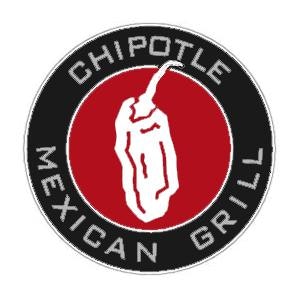Some investors have regained their appetite for Chipotle Mexican Grill, Inc. (NYSE:CMG) shares. As a Chipotle shareholder who has also bought shares of the company for the real-money Prosocial Portfolio I manage for Fool.com, there’s one element of the restaurant company’s quarterly tidings that I find especially interesting. It’s not an element more traditional investors would factor into the business equation, either.
Most bullish investors are probably anchoring on Chipotle Mexican Grill, Inc. (NYSE:CMG)’s top-line results. Total sales increased by 18.2%, and comparable-store sales increased 5.5%. Even better, the comps reflected an increase of customer traffic (although an additional day in the quarter gave the figure a little bump, too).
These figures are particularly impressive, given difficulties in the industry. Take former parent McDonald’s Corporation (NYSE:MCD), which reported results that analysts and investors found disappointing yesterday. The fast-food giant’s comps increased an anemic 1%, and management disclosed “weak sales trends” with the warning that the rest of the year could remain difficult for its business.
That puts Chipotle Mexican Grill, Inc. (NYSE:CMG) in a bullish light right now, following the hit the stock took last year. Much of that bearishness related to shaky theories — for example, that Yum! Brands, Inc. (NYSE:YUM)‘ Taco Bell was somehow a contender with its own fast-food version of Mexican fare.

The shocker: GMOs are on the call
I search for forward-looking, positive companies to be Prosocial Portfolio stocks. That’s why I’m glad to see Chipotle Mexican Grill, Inc. (NYSE:CMG)further acknowledging an issue that more and more American consumers find troubling: the presence of genetically modified organisms in their foods. Chipotle recently made itself an awesome example of transparency by pledging to disclose GMOs on its menu. Even more impressive, the restaurant company admitted that while most of its ingredients are GMO-free, it hasn’t eradicated them completely and explained why they’re difficult to remove from its supply chain.
Management talked about menu pricing in the quarterly conference call with analysts, and that conversation wasn’t the standard discussion of costs companies might pass on to consumers. Chipotle Mexican Grill, Inc. (NYSE:CMG) hasn’t raised its menu prices in two years, despite food inflation and Chipotle’s aim to provide food from sustainable, local sources as often as it can. The chain takes its “Food With Integrity” motto seriously.
Management purposely and thoroughly discussed the GMO issue; CEO and founder Steven Ells brought it up at the beginning of the call, vowing to accomplish “the difficult mission of removing all GMO ingredients from our food.” The company has already been working to replace some of its ingredients with GMO-free alternatives, and management will be working to make more progress in the coming months.
Right now the chain is holding prices steady as it works through ways to eradicate GMO ingredients. This is likely to be a costly endeavor for the company, and of course it could result in higher prices passed on to Chipotle Mexican Grill, Inc. (NYSE:CMG) fans. However, the price will probably be worth it for consumers who want peace of mind when it comes to genetically modified ingredients, and education will build goodwill with those individuals, and even those who aren’t particularly interested in eating GMO-free.
Why this matters
Investors who view this as an esoteric and ultimately insignificant issue might want to rethink their stance.
In another development that touches on the demand for GMO disclosure, Whole Foods Market, Inc. (NASDAQ:WFM) recently pledged to require all suppliers to label GMOs in their products by 2018. The supermarket can more easily take this step than many of its conventional rivals can. Many of the items sold at Whole Foods are already organic (by definition, non-GMO), and some of its suppliers already do disclose their GMO-free status. The supermarket company is getting an early competitive advantage in this area.
A poll conducted by CBS/New York Times in 2008 revealed that 53% of consumers surveyed would not choose genetically modified foods. A whopping 87% of consumers said they simply wanted GMO disclosure — which is something that’s common internationally, with Europe being a prime example.
In our current food supply, it’s difficult to avoid genetically modified ingredients, given that in America, most corn and soy crops are genetically modified. Regardless, it’s pretty clear that consumer demand for this information has increased, and public policy is beginning to push hard. Recent GMO labeling laws were passed in Maine and Connecticut, and Massachusetts is considering one, too.
Dining with consciousness
Conscious dining is increasing, and this relates to other niches that could grow as well. Take vegetarianism and veganism. There’s a growing trend of health awareness in America, and statistical evidence of the healthiness of a plant-based diet directly feeds into that trend and the rethinking of eating habits.
Nature Medicine recently published Cleveland Clinic research that pointed to a compound in red meat that promotes hardening or clogging of arteries. Last month, a major analysis, partially funded by the National Institutes of Health and published in The Journal of the American Medical Association, cited data from Loma Linda University researchers. They compared mortality rates of those who practiced different types of diets, using a huge sample of 73,000 individuals, all of whom were Seventh Day Adventists, who as a rule eschew other unhealthy habits like drinking and smoking. As it turns out, over six years, adults consuming plant-based or largely plant-based diets showed a tendency to live longer than the carnivores.





